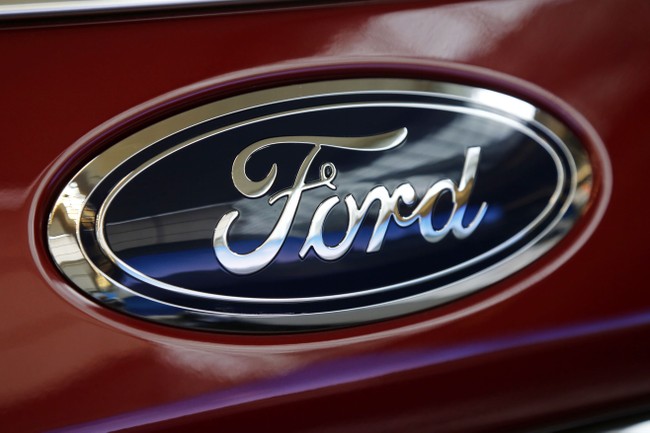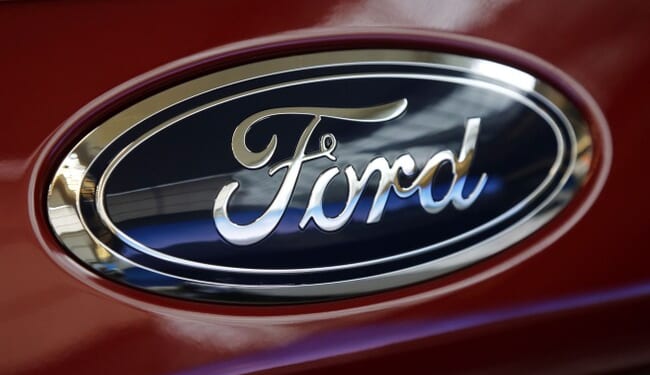
For some time now, the current administration has offered electric vehicles as the solution to all of our problems. Can’t sleep? Buy an EV. Suffering from dandruff, bad breath, or foot pain? Buy an EV. Crooked teeth? Buy an EV.
OK, so maybe it’s an exaggeration, but the Biden administration has made such a push toward EVs, despite the high cost of ownership that puts them out of reach for millions of Americans. In recent weeks, the White House has issued mandates that intend to push more American families and companies into EVs, yet sales aren’t encouraging.
Earlier today, my friend and esteemed colleague Stephen Green reminded us that “we’re still far, far away from the end of dino-burning engines — and likely to stay that way for far longer than the grifters in the EV industry and the autocrats in Washington (and several states, too) would have you believe.”
What’s encouraging is that certain segments of the automobile industry are beginning to acknowledge that the headlong rush toward electric cars and trucks is a quixotic fantasy. Instead of tilting at windmills, bureaucrats like Jennifer Granholm and Pete Buttigieg are tilting at the internal combustion engine.
Green reported back in January that Toyota “has concentrated its research and development on other alternative power trains, like hybrids and hydrogen fuel cells.” And now, I’m excited to report that Ford is shrinking back from the heavy emphasis on EVs and looking to hybrids for the future.
Flashback: Buttigieg Says the Solution to High Gas Prices Is Simple: Just Buy an EV
“In another sign the auto industry is downshifting its transition to electrification, Ford Motor Co. will delay the launch of new three-row electric vehicles in Ontario, adjust the timing of its next-generation electric truck and offer hybrid powertrains across its entire internal combustion engine lineup in North America by the end of the decade,” reports Breana Noble at the Detroit News. She adds that Ford admits that it “and the industry got the adoption growth timeline for EVs wrong.”
Full Disclosure: I’m a Ford man and always will be. Nothing against any other make; I’ve just always loved Fords — it goes back to my grandfather and my great uncle — and this move solidifies my love for the blue oval.
In a statement, Ford refers to the change in strategy as a “retiming” and clarifies:
The company continues to invest in a broad set of EV programs as it works to build a full EV line-up. These initiatives support the development of a differentiated and profitably growing EV business over time while Ford serves customers with the right mix of gas, hybrid and electric vehicles based on demand today. In parallel, Ford is expanding its hybrid electric vehicle offerings. By the end of the decade, the company expects to offer hybrid powertrains across its entire Ford Blue lineup in North America.
Fortune points out that Ford’s move comes as first-quarter EV sales nationwide were a paltry 2.7%, “far below the 47% increase that fueled record sales and a 7.6% market share last year.” Electric market share is a slim 7.1%.
At the same time, hybrid sales jumped 45% over the quarter, and plug-in hybrid sales increased by a third. I currently drive a plug-in hybrid, and I love the concept. I get 10-17 miles on all-electric, depending on external temperatures, before the gas-hybrid engine kicks in. I save a ton on gas when I make short trips to town.
Regardless of the alternatives — or perhaps because there are so many alternatives — EV sales have fallen flat. Even as the administration keeps trying to strong-arm Americans into going electric, Fortune admits that “consumers strapped for cash are reconsidering buying expensive EVs and looking to alternatives.”
“Hybrid — that’s the way to go,” Daniel Ives, an analyst at investment firm Wedbush Securities Inc., told the Detroit News. “It kicks the can down the row. EVs from a Wall Street point of view is a four-letter word right now. Demand globally has softened around the world, and Detroit has had to pivot to more of a hybrid strategy.”
Meanwhile, the excitement of the initial EV push has faded, partially because the most enthusiastic EV buyers have jumped in. Consumers are skittish about the lack of charging infrastructure nationwide, despite promise after promise that federal largesse would cover the country with charging stations.
“Industry analysts say most early technology adopters and people who want to cut emissions have already purchased EVs,” reports Fortune. “Automakers now have to convince skeptical mainstream buyers to go electric, but those customers fear limited range and a lack of charging stations.”
I’m convinced that full hybrids and plug-in hybrids are a much more sustainable future than rushing headlong into EVs. If we’re going to eventually get rid of fossil fuels — which I’m not sure is necessary — we’ll have to phase it out far more gradually than the Biden administration wants.












